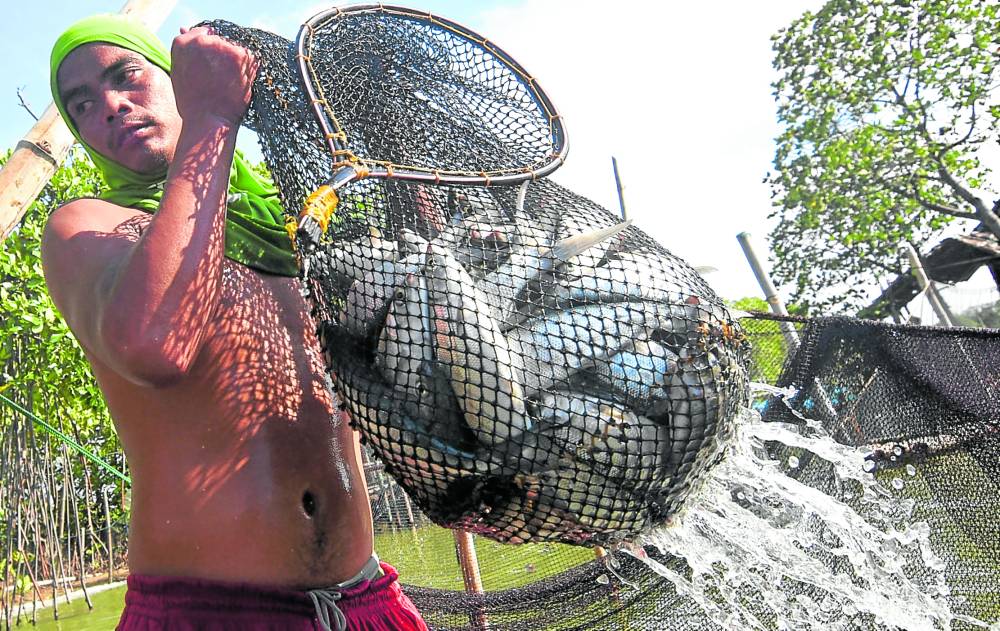Massive fish importation will hurt local growers, ‘bangus’ raisers warn

BINMALEY, PANGASINAN — A group of bangus (milkfish) producers in this province asked the national government to consider the local fish growers’ plight when planning to import massive volume of fish, as this “affects the local industry that is just starting to rise from collapsed prices.”
The Samahan ng Magbabangus sa Pangasinan (Samapa) said bangus supply remained still high, as the industry hardly suffered a dent from the several typhoons that sliced through the province in October and November.
“It is true that there are fish growers who lost their stocks, but production activities are normal. With thousands of tons of imported fish to flood the market, local fish producers will again suffer from slumped prices,” Christopher Aldo Sibayan, president of Samapa, said in an interview Saturday.
“Malakas at masigla ang bangus industry ngayon, pero affected ito ng unstable prices (The industry is strong and robust but is still reeling from unstable prices),” Sibayan told the Inquirer.
The Department of Agriculture (DA) has approved the importation of 30,000 tons of small pelagic fish (galunggong, bonito, moonfish, and mackerel) in the first week of November, and is planning to import another 8,000 tons for December.
Detrimental
The DA said it was resorting to importation to mitigate the effects of the typhoons that reportedly destroyed 1,781.71 metric tons of fish worth P666.72 million, affecting 6,082 fishers in areas even before the onslaught of last week’s Super Typhoon “Pepito” (international name: Man-yi).
In a statement posted on its social media page Saturday, the Samapa said it believed that proper data gathering should be established prior to the implementation of such decisions as these have detrimental impact on the livelihood of fisherfolk not only in Pangasinan.
“The large quantities of the imported fish products could disrupt the market of our local fishermen. We have been struggling with the price fluctuations and the recent weather related challenges, this action would only worsen these challenges and undermine the sustainability of the local fisheries, the group said.
Sibayan has been discussing with some sectors and organizations involved in agriculture to reexamine the DA’s decision.
Early this year, the farmgate prices of bangus prices dipped to P90-P100 per kilo, way below the production cost of P125-P136 per kilo.
While prices reached P160 per kilo in August, the “prices are very unstable and could tumble down again in just hours,” said Ronald Eugenio, a fish cage operator at Sual Mariculture Park.
In need of help
The Samapa said the “small-scale fish producers or those operating less than 30 cages” who were actually in need government interventions even when there are no calamities, as they are affected by high cost of inputs like feeds, which is 80 percent of the production cost.
Sibayan added there were bangus nursery operators (those who grow fry into fingerlings) who were affected by a storm surge caused by last October’s Severe Tropical Storm “Kristine” (international name: Tramj) in Binmaley and Lingayen towns.
“We are asking the help of the Department of Agriculture-Bureau of Fisheries and Aquatic Resources to extend help to them,” he said.
Sibayan, however, did not provide data regarding losses suffered by the bangus nursery operators during the onslaught of “Kristine” in late October.

















